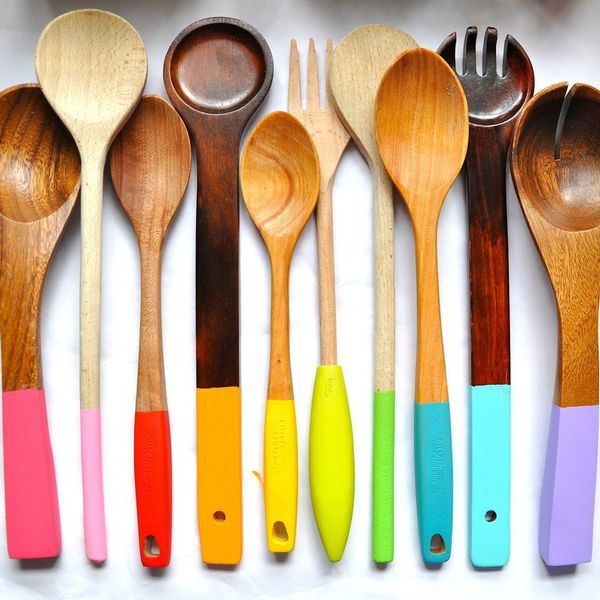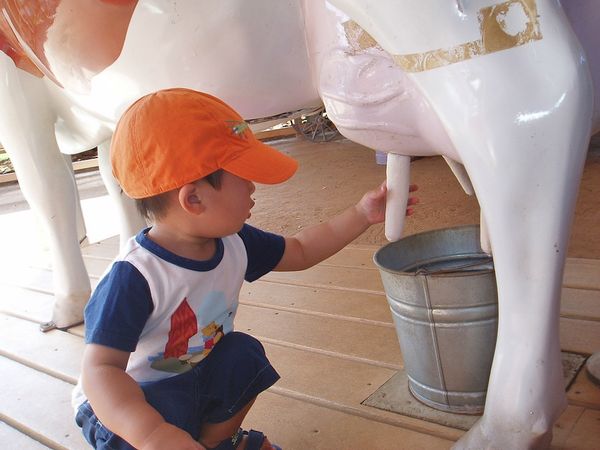If you know me personally, you might know that I'm "sick" all the time. If you know me really well, you know that I have an autoimmune disease, which makes me belong to a certain group who affectionately are named "Spoonies." While I don't like that to define me, it is a huge part of my life. Not until recently have I discovered some things that really irk me about the way people treat you once they know you're sick. So if you know someone who is chronically ill or has an autoimmune disease or any type of disability, here are a few things you should know:
1. Please Don't be Condescending Towards Us
Many people with indefinite illnesses have restricted diets. I can't tell you how many times I've been asked when going out with people "Can you eat something here?" and as soon as I say "Yes" their reply is "Are you absolutely sure? We can go somewhere else if you want to." If I say I'm ok with something, trust me. I know my limits and if I happen to mess things up, I know how to handle it. Just please don't make me the center of attention.
2. We Don't Want Your Pity
That sounds harsh, but let's put it in the perspective: would you want someone to look at you like you were a helpless infant constantly just because you were born with a different genetic makeup that happens to make life harder? NO! Yes, I may need help sometimes when I'm having a bad day. Yes, I may not be able to do everything you can, but that doesn't mean I'm less of a human being. Sometimes we appreciate your empathy. It's nice to know that someone understands you're having a rough time and still pushing through. But we never want you to look at us like we're weak, pathetic beings.
3. Don't Be Mad At What We Can't Control
Everyone's life, disease ridden or not, has aspects that are uncontrollable. It just turns out that us sick people have more of those things. Sometimes we commit to hanging out with our friends and when the day comes, we just don't have the energy to or our symptoms get the best of us that day and we have to cancel last minute. Sometimes we may be an emotional rollercoaster, angry with you one second and in the next five minutes it's like it never happened. Sometimes we can't put our all into everything like we had hoped to. But please don't be angry at us for things that we can't control. A lot of us already feel we're broken and defective, but we didn't ask for this life. We wouldn't cancel on you last minute if we didn't have to. We wouldn't be angry out of frustration if we weren't stuck with an incurable disease. So please be a little understanding. We're getting through day by day, as best as we know how. Again, we want a little bit of empathy, but not pity.
4. Don't Be Scared to Ask Questions
Most of us aren't going to talk about our disease if we don't have to. Once again, we don't want that to be the definitive characteristic of our identity. But if you have questions, don't be scared to ask and don't tiptoe around the subject. To us, our struggles have become another thing, our routine. It's almost normal, so if you have a question, just ask it. It's better to know the answer straight from us than to assume. For example, when I was diagnosed during the beginning of my junior year in high school, I remember my best friend telling me that she asked her mom (a nurse) if I was going to die from my illness. It really shocked me that she didn't ask me directly since we had known each other since we were five, but given the nature of the question, I understood. Ever since then, I've made it a point to be open with people when they ask questions like that.
5. We Don't Want Your Home Remedies or Unsolicited Advice
This one also sounds harsh, but let me explain. We know you want to help, and we know that when you give us advice you're only trying to help. Ninety nine percent of the time when you tell us that your cousin's best friend's mom has the same illness and tried this all natural concoction that cured them, it's not going to help us. Unless you're a doctor, your advice is most likely not helpful. To be honest, some doctors don't even know how to treat us. So don't look down on us just because we may take a handful of different medication everyday and are not trying natural or organic remedies. Everyone's illness isn't the same and each person's body doesn't react the same to certain treatments. If the meds help, we're going to take them.
I'm not trying to complain. I know a lot of people have it worse than I do. And I know most people only treat us differently because they want to help but don't know how. Sometimes the way people treat us just makes us feel like less of a person and more of a full time patient and to be honest, it's a real blow to a person's self esteem and confidence. This wasn't written with the intention of making people feel bad about the way they act towards people with disabilities. This was written solely to make us all understand each other a little bit more.





















